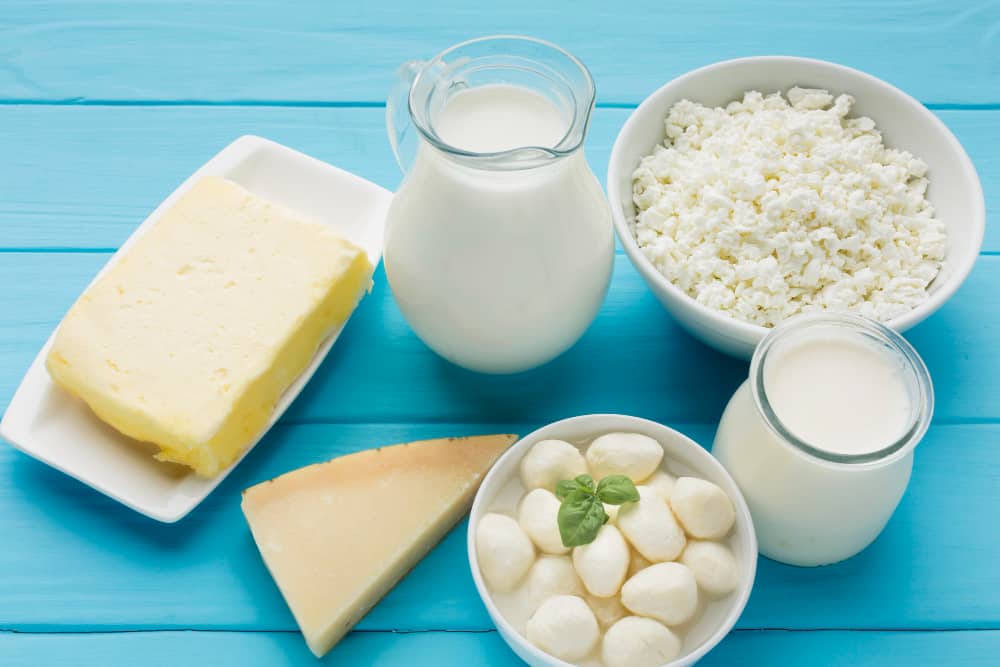Are you tired of being constipated? Millions of people suffer from constipation on a daily basis, and it can be incredibly frustrating. It can be a very uncomfortable and embarrassing condition to have. Constipation is caused when the colon absorbs too much water from stool, making it hard and dry. This can lead to difficulty passing bowel movements and other problems like hemorrhoids. Most people don’t give much thought to how they move their bowels. But what if there were things you could do to ensure you never had a problem with constipation again? There are, and in this article, we will discuss them. This article will teach you how to prevent constipation naturally.
You will learn about the different foods that you should eat, as well as the ones you should avoid. You will also discover how to keep your colon healthy and get rid of toxins that can cause constipation. So, if you are ready to say goodbye to constipation forever, let’s start!
What is Constipation Disease?
Constipation disease is a common digestive condition that can cause bloating, discomfort, and irregular bowel movements. It’s a common problem, affecting almost everyone at some point in their lives. Fortunately, there are many simple and natural ways to treat it — no potions or pills necessary.
With the right approach, constipation can be a thing of the past. If left untreated, constipation disease can lead to more severe issues such as colon cancer. Don’t let it get to that point – take the necessary steps now to prevent this nasty disease from taking hold!
Causes of constipation
Several different things can cause constipation, including:
- Not eating enough fiber: Fiber helps to add bulk to stool, making it easier to pass. Foods that are up in fiber include fruits, vegetables, whole grains, and beans.
- Not drinking enough fluids: Fluids help to soften stool and keep the colon hydrated. The goal is to drink 8 glasses of water daily.
- Medications: Some medications, such as painkillers, antidepressants, and iron supplements, can cause constipation
- Poor bowel habits: Holding in the stool or rushing through a bowel movement can lead to constipation.
- Medical conditions: Some medical conditions, such as thyroid disorders, diabetes, and Parkinsons’ disease, can cause constipation.
1. Eat more fiber
One of the best ways to prevent constipation is to eat more fiber. Fiber is found in various foods, including fruits, vegetables, and whole grains. Fiber helps keep your colon healthy by promoting regular bowel movements. It also helps absorb water, making the stool softer and easier to pass.
There are two types of fiber – soluble and insoluble. Soluble fiber dissolves in water and aids in regulating blood sugar levels. Insoluble fiber does not dissolve in water and helps move things along in the digestive tract. To avoid constipation, adequate intake of both insoluble and soluble fibers is a must.
It would help if you aimed to eat 25-30 grams of fiber per day.
Here are some great sources of fiber:
- Oats
- Berries
- Broccoli
- Beans
- Lentils
- Whole grain bread
Related: Eat 10 Foods to Regain Strength After Vomiting and Diarrhea
2. Drink plenty of fluids

Drinking plenty of fluids, especially water, is essential when trying to prevent constipation. Drinking enough water helps keep your stool soft and easy to pass. It also helps move things along in the digestive tract and prevents dehydration.
Dehydration can actually make constipation worse. When dehydrated, your body pulls water from your stool, making it hard and dry. This can make it hard to have a successful bowel movement.
So, make sure you are drinking enough fluids every day. The recommended amount is 8/10 glasses of drink per day. You can also drink herbal tea or 100% fruit juice to help prevent constipation. Also, avoid caffeinated drinking beverages like coffee and soda, as they can cause dehydration.
3. Exercise regularly

This is another excellent way to prevent constipation. Exercise helps move things along in the digestive tract and prevents stagnation. It also helps strengthen the muscles in the abdomen, which can help with bowel movements.
You can join a gym or start an intense workout routine to exercise. Moving your body more frequently throughout the day can help. Take a walk around the block, bike ride, or take a yoga class. Any exercise will do. Exercise is also great for overall health and well-being.
4. Limit processed foods

Processed foods are one of the main culprits of constipation. These foods are high in fat and low in fiber, which can lead to difficulty passing stool. Processed foods also lack the essential nutrients for a healthy digestive system.
Suppose you are constipated. Limit or avoid processed foods as much as possible. Focus on eating whole, unprocessed foods such as vegetables, fruits and whole grains. These foods will help keep your digestive system healthy and prevent constipation. Limit processed foods to no more than 10% of your daily diet.
5. Avoid constipating foods

Certain foods can contribute to constipation. These foods are low in fiber and may contain substances that make it difficult to pass stool.
Some common constipating foods include:
- Dairy products (milk, cheese, ice cream)
- Processed meats (bacon, sausage)
- Refined grains (white bread, pasta)
- Fried foods
- Caffeinated beverages (coffee, tea, soda)
- Alcohol
If you are constipated, avoid these foods as much as possible. Instead, focus on eating high-fiber foods like fruits, vegetables, and whole grains. These foods will help keep your digestive system healthy and prevent constipation.
6. Take a probiotic supplement
Probiotics are bacteria that are found in the gut. They help promote a healthy gastrointestinal tract by keeping the good bacteria in the gut balanced. Probiotics can also help constipation by making the stool softer and easier to pass.
You can get probiotics from certain foods, like yogurt and sauerkraut. You can also take a probiotic supplement. Look for a supplement that contains at least 10 billion CFUs (colony-forming units).
7. Try a natural laxative
If you are still struggling with constipation, try a natural laxative. Natural laxatives work by softening the stool and stimulating bowel movements. They are generally safe to use on a short-term basis. However, it is essential to talk to your doctor before taking any laxatives, as they can cause side effects in some people.
Some common natural laxatives include:
- Psyllium husk
- Prunes
- Senna
- Aloe vera juice
- Cascara sagrada
- Dandelion tea
You may also read: Transform Your Life With a Simple Daily Routine for Depression
Talk to your doctor
Consult your doctor if you are still facing issues with constipation. They can help you identify the underlying cause of your constipation and recommend a treatment plan. In some cases, medication may be necessary to relieve constipation. However, there are many safe and effective medications available.
Don’t suffer from constipation any longer. Try these tips on preventing constipation naturally and getting relief from this uncomfortable condition.
FAQs – Frequently Asked Questions
What are the symptoms of constipation?
The most common symptom of constipation is having a hard, dry stool that is difficult to pass. Other symptoms may include bloating, abdominal pain, and feeling like you need to strain to have a bowel movement.
How long does constipation last?
Constipation is often a short-term problem that can be resolved with lifestyle changes or over-the-counter medications. However, some people may experience chronic constipation for weeks or months.
What are the complications of constipation?
If left untreated, constipation can lead to severe complications, such as anal fissures and hemorrhoids. Constipation can also cause stool to back up in the colon, which can lead to a condition called fecal impaction. Fecal impaction is a severe condition that requires medical treatment.

